12 April 2023
Dr Alissa Cait is a postdoctoral researcher working in the Gasser Lab to uncover the relationship between the trillions of microorganisms in our body, called our microbiome, and immune health. From her research, she has gleaned some fascinating lifestyle insights.
“I’m really interested in how factors such as the food we eat or the environment we’re exposed to affects the populations of bacteria in our microbiome and how this then affects our immune function,” says Alissa.
The microbiome is no small part of the body. It is estimated that about 2-3kg of an average person’s body weight is microbiome.
“Each part of our body is a niche environment which hosts a unique array of microorganisms. This can include bacteria, viruses, fungi, and even certain parasites,” says Alissa.
“Most of our microbiome is in our gut. The environment is perfect. It’s warm, it’s wet, there’s food and our immune system has evolved to let these microorganisms live there without brutal attacks.”
We have co-evolved with these miniscule life forms to have mutual benefit. They have a place to call home and for us, the benefits vary.
“There are some nutrients we can only derive from our food because they are consumed by bacteria in our guts,” says Alissa.
“In some cases, this is because the waste product of the bacteria is the nutrient that is essential for our bodies, in other cases it’s because the bacteria help us to break down large molecules in our food to more digestible, smaller molecules.”
Just like a rainforest, the diversity of the species that call it home determines how healthy our microbiomes are. Each of us has a unique microbiome which works with our body to carry out an array of bodily functions.
“We find that the more diverse our microbiome is, the better it is at helping us digest or getting nutrients from certain foods,” says Alissa.
Our microbiome can also protect us by outcompeting other, more harmful microbes that would otherwise infect our bodies.
“Our bodies are an ecosystem where our cells have coexisted with bacteria and other microbes for all of time. It only makes sense that they would play a fundamental role in our health and development.”
“One of the biggest factors that influence the health of the microbiome is how much fibre is in your diet. The more varied sources of fibre you’re able to consume, the better chance we have at cultivating that diverse and flourishing microbiome,” says Alissa.
Fibre is special because it is food for healthy species of bacteria which excrete types of molecules called short chain fatty acids. These molecules signal various knock-on effects that promote the health of multiple systems in the body including your nervous system.
“There is a whole lot of benefits that come from having a healthy microbiome. There are links between factors in early life that disrupt a healthy microbiome and the development of diseases such as allergies.”
Alissa is involved with a clinical study where she is trying to understand the best way to improve our microbiome at an early age. In this study, six-month-old infants are being given fibre-rich formula and compared to infants who drink formula without the fibre.
“We are testing the difference in the blood of the infants before and after being given the fibre-rich formula. We’re measuring the impact this has on factors such as immune cells in the blood and the number of infections the infants develop,” says Alissa.
Alissa says that during early childhood, there is a critical window for immune cell development which influences how your immune system functions throughout the rest of your life. What we are exposed during this window can also have an impact on allergy development.
“We want to understand what we can do during this time that will help improve immune function,” says Alissa.
Alissa is hoping that one day this research might help us to understand and help reverse the allergy epidemic that has swept the industrialised world over the last few decades.
“Much of what we know about the microbiome has been uncovered over the last decade. It’s a field that is in its infancy with implications in immunology, neuroscience, dermatology, and nutrition.”
Alissa recently published papers where she analysed several studies investigating the impact of antibiotic use during pregnancy on the microbiome of the developing foetus following birth. It showed that using antibiotics during pregnancy alters the baby’s microbiome and increases their susceptibility to allergies later in life.
“This is quite significant because it shows that the likelihood of developing allergies could start before birth and is closely linked with the development of our microbiome. What our mothers do and are exposed to drastically impacts the child later in life,” says Alissa.
This research is especially close to Alissa’s heart as she is currently six months pregnant and is trying to implement her research into her own lifestyle to provide the best chances for her developing baby.
“Factors that reduce the baby’s chances of developing allergies include the mother eating more fibre during pregnancy, having a natural birth and then the baby being breastfed and being exposed to pets and dirt once they’re born.”
All these factors increase the chances of the baby being exposed to the right microbes in early life that are then able to seed and flourish into a healthy, diverse microbiome later in life.
“With my pregnancy, I’m trying to eat as much fibre as I can and generally trying to lead a balanced lifestyle,” says Alissa.
“But there’s a lot to think about and some of the factors are simply not within our control. For example, if the birth is a C-section or if we get a bacterial infection during pregnancy and need to take antibiotics. But the main thing is we try with what we can control.”
Alissa has been interested in health for as long as she can remember. Pursuing a career in science, she got her PhD in Microbiology and Immunology at the University of British Columbia. She has always led a very active life. In the last year of her PhD, she represented Canada in synchronised swimming in the 2017 World Masters Games in Budapest. In September 2019, Alissa moved to New Zealand and started work at the Malaghan Institute to research immune health, it seemed like the natural choice that aligned with her lifestyle.
“There are so many unknowns but one experiment at a time, the unknowns slowly become undone and click into place of the knowledge we already have,” says Alissa.
“Much of what we know about the microbiome has been uncovered over the last decade. It’s a field that is in its infancy with implications in immunology, neuroscience, dermatology, and nutrition.
“Our bodies are an ecosystem where our cells have coexisted with bacteria and other microbes for all of time. It only makes sense that they would play a fundamental role in our health and development.”
Related articles
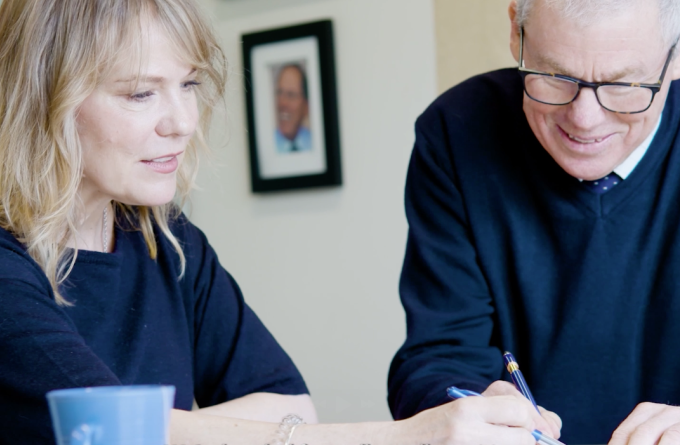
Kjesten Wiig: bringing life-changing treatments to life
27 February 2025
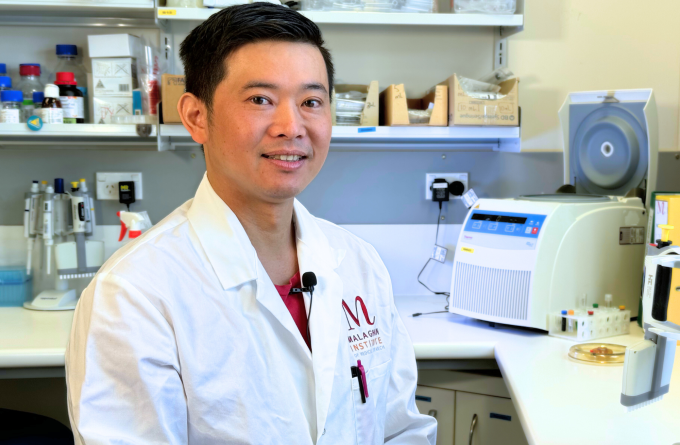
Fighting allergic skin disease at its root
17 December 2024
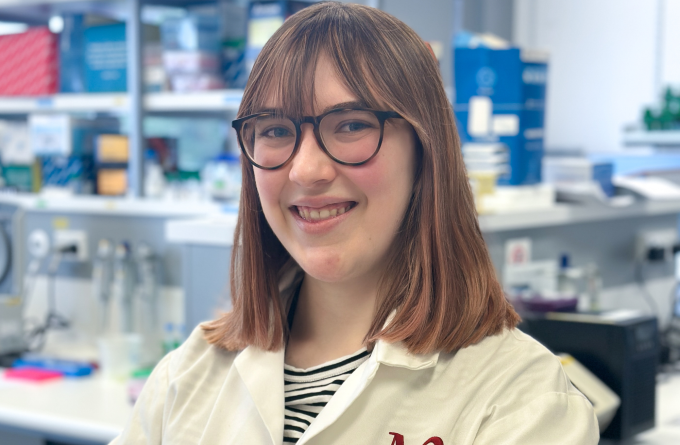
As easy as breathing: the future of vaccines
31 October 2024
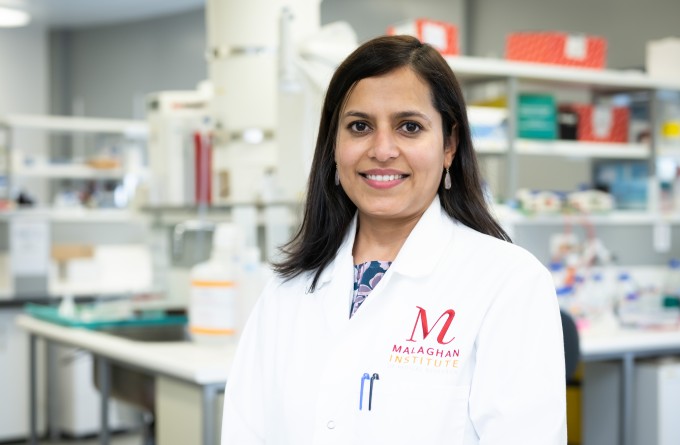
CAR T-cell therapy, the battle of the blood cells
26 September 2024
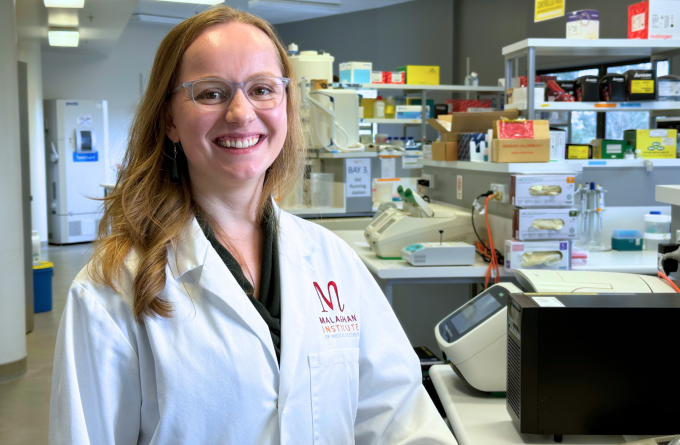
Fever: too hot to handle or the body's first line of defence?
22 August 2024
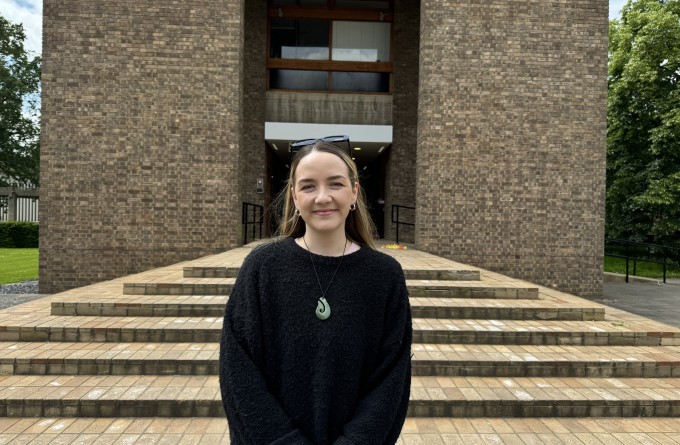
Rejuvenating the ageing immune system
17 July 2024
